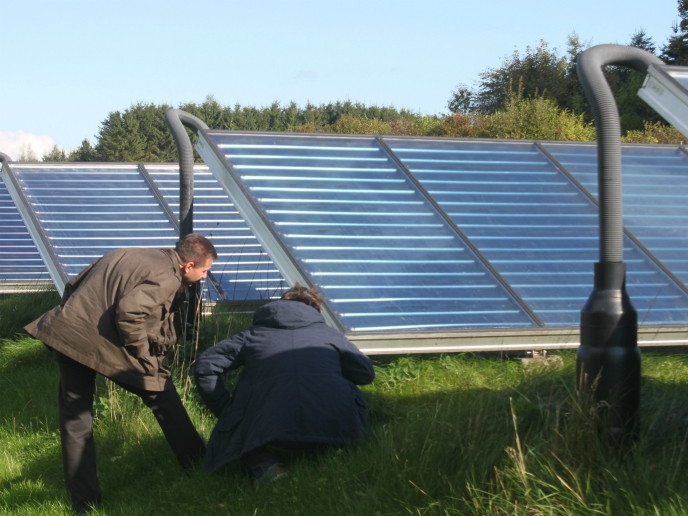South-eastern European communities investing in small, renewable district heating and cooling systems
Small modular DHC grids have several benefits, from contributing to regional economies through local biomass supply value chains to mitigating environmental impacts. The comfort for connected households improves simply by only using a heat exchanger. Knowledge and experience in small modular renewable DHC systems have already been created in Denmark, Germany and Austria, among other countries. Progress is much slower in Croatia, Slovenia, Bosnia and Herzegovina, the Republic of North Macedonia and Serbia. “CoolHeating supported the market uptake of small modular renewable DHC systems in these countries by transferring know-how and best practices from Austria, Denmark and Germany,” says Dominik Rutz, coordinator of the EU-funded CoolHeating(opens in new window) project. Supporting and promoting renewable HC concepts Project partners developed 7 technical concepts for small modular DHC grids with a total estimated annual use of 202 GWh/a. In summer 2018, they started constructing the first phase of the concept in Sabac, Serbia. They have also signed a letter of commitment for the second phase. According to Rutz, local politicians and potential investors report that grids will be built in Karposh (the Republic of North Macedonia) and Visoko (Bosnia and Herzegovina) within the next three years. Grids in Ljutomer (Slovenia) and Ozalj (Croatia) are planned over a 5-year period. A compilation of 18 small modular renewable DHC best practice examples presented technical, economic and organisational parameters. Denmark, Germany and Austria hosted 3 study tours on small renewable DHC projects that attracted nearly 80 participants, including mayors, representatives of city assemblies and relevant authorities of the target municipalities. The CoolHeating team examined and described the non-technical framework conditions for establishing small renewable DHC grids in Denmark, Germany and Austria, as well as in the target municipalities. They also provided input on district heating to national policies. Knowledge transfer and capacity building CoolHeating delivered guidelines to support different actors and target groups with low awareness and limited knowledge on how to set up DHC systems. A user-friendly handbook on small modular renewable DHC grids provides the necessary background for stakeholders in national languages. Potential investors received support in developing business models and financing schemes of small renewable DHC grids. A new tool assisted in calculating the financials of small modular DHC projects. About 380 people participated in DHC training courses. In total, 242 investors, finance sector representatives, project developers and other stakeholders received training to facilitate the deployment of improved business models and innovative financing schemes for mobilising investments in small modular renewable DHC systems. Surveys gauged public perception of DHC grids and heat consumption patterns, and info campaigns informed citizens about CoolHeating. Meetings held with national regulators, heating and cooling utilities, authorities and politicians discussed small DHC grid implementation. “From government officials to consumers and businesses, CoolHeating stimulated the interest of local communities in setting up renewable DHC systems,” concludes Rutz. “Until now, the image of large district heating was poor and many people were very sceptical.” Thanks to this increased public acceptance, at least 3 550 households (10 650 inhabitants) will directly benefit. Once fully implemented, the small renewable DHC initiatives will serve as lighthouse projects throughout the Balkans.







